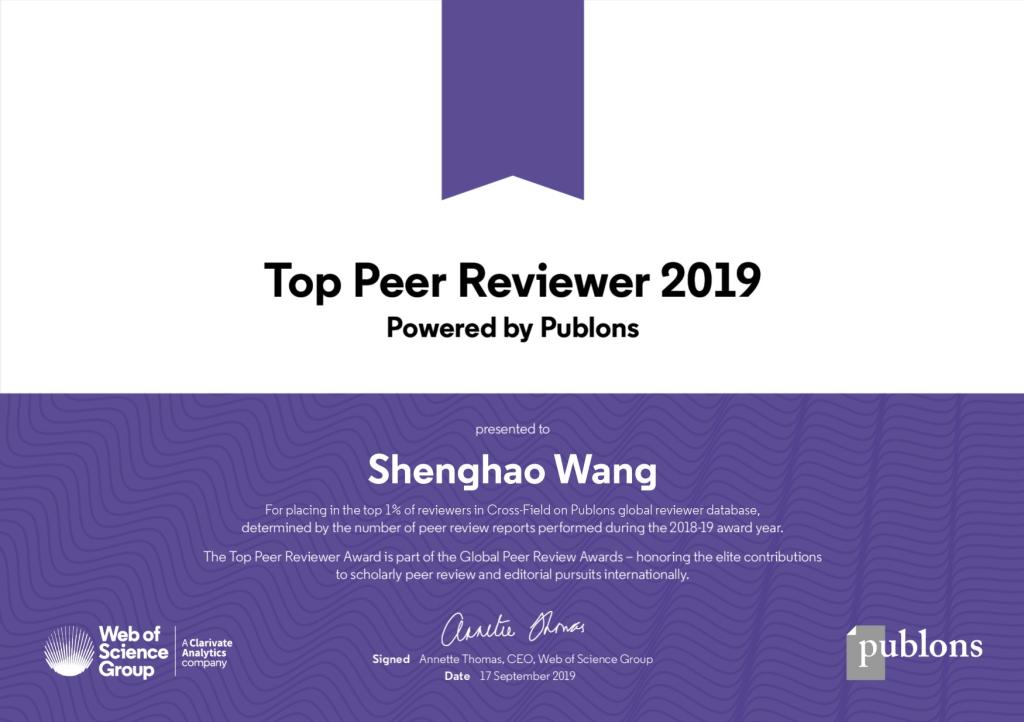Launched in 2012 and joined by a quarter of a million researchers worldwide, Publons is one of the key tools of the Clarivate Analytics that allows academics to "track, verify, and showcase" their peer review and editorial contributions for academic journals. Publons is the new environment where the researcher can benefit from the improved Web of Science ResearcherID, add his/her publications, track the citations, and manage the Web of Science record. Publons helps get recognition for all the peer review work of the researchers easily and helps demonstrate the expertise and standing in the field. From 2016, Publons announces the “The top 1% of reviewers in each of the 22 Essential Science Indicators (ESI) research fields” to honor elite contributors who have demonstrated expert commitment to protecting the integrity and accuracy of scholarly publishing in the 22 ESI research categories. Rankings are calculated by number of verified pre-publication reviews performed and added to Publons between 1 September 2018 and 1 September 2019. Reviews were attributed to an ESI field based on the journal the review was performed for. More details about Global Peer Review Awards can be found here:https://publons.com/awards/peer-review/2019/
Prof. Wang has covered more than 100 reviews for over 40 peer-reviewed journals (e.g., Energy and Environmental Science, Advanced Energy Materials,Advanced Functional Materials,Applied Physics Letters, CHEM,Joule, etc) in Materials Sciences and multi-disciplinary fields. In recognition of his contributions and efforts, Prof. Wang has been credited as a top peer reviewer by Publons.

“We, researchers, receive comments from outsides, and in the meanwhile we should also contribute to the peer review to the academic community”, as Prof. Wang said. “In addition to the service it provides to the academic community”, Prof. Wang sees reviewing "as an opportunity to get insight into the newest research progress. It allows me to know the research trends in frontiers field which gaining importance and popularity".
Shenghao Wang received his Ph.D. from University of Tsukuba, Japan. He worked as a postdoctoral scholar in Prof. Yabing Qi's Unit at the Okinawa Institute of Science and Technology Graduate University (OIST), Japan, from 2013 to 2016. Then, he joined the University of Tsukuba. Currently, he is a full professor in the Materials Genome Institute, Shanghai University, China. His research interests include surface and interface sciences, photoemission spectroscopy techniques, and solar cells.
More details regarding Dr. Shenghao WANG's. See:http://en.mgi.shu.edu.cn/info/1042/1034.htm